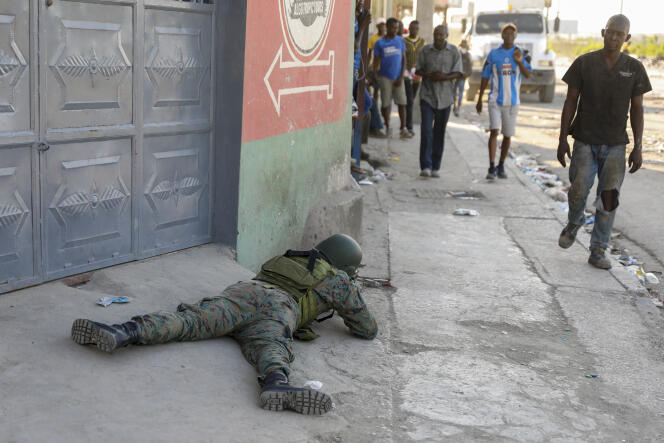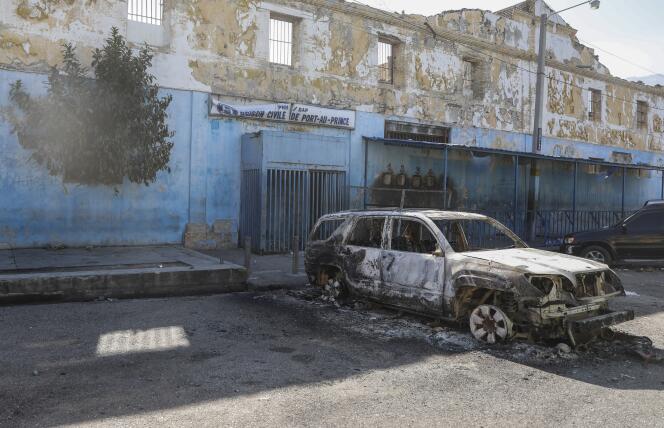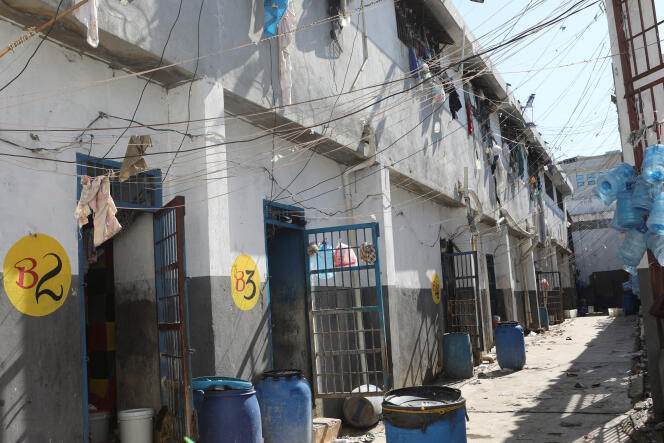


Three days and four nights to quell the violence terrorizing the population of Port-au-Prince. This is the objective set by the Haitian government after several days of chaos marked by murderous attacks by a coalition of criminal gangs on several police stations, prisons, and Toussaint-Louverture International Airport.
According to a press release signed by the Minister of Economy and Finance, Michel Patrick Boisvert, a state of emergency was declared early Sunday evening, March 3, "throughout the West Department" (...) "for a renewable period of seventy-two hours." It comes as a consequence of "the deterioration in security, particularly in the metropolitan area of Port-au-Prince, characterized by increasingly violent criminal acts perpetrated by armed gangs."
The government has also imposed a curfew starting at 8 pm on Sunday and extending for the subsequent three nights from 6 pm to 5 am.
This decision by the authorities follows four days of intense violence in Haiti, a country already tested by several years of political, security, and humanitarian crises. On February 29 and in the days that followed, several gangs joined forces in a coalition called Viv Ansanm ("living together") to launch a series of attacks throughout the metropolitan area. Currently, these criminal gangs control approximately 80% of the region. "Since Thursday, Port-au-Prince has been taken hostage by armed bandits," said Rosy Auguste Ducéna, Program Manager at the NGO RNDDH (Réseau National de Défense des Droits Humains).
On the night of Saturday, March 2 to Sunday, March 3, gangs stormed two major prisons, Croix-des-Bouquets and the National Penitentiary in Port-au-Prince, freeing several thousand inmates. "Nearly 4,000 people" were incarcerated in the penitentiary, Péguy Jean, a lawyer at the Port-au-Prince bar, told Le Monde. "Only 99 of them are still there," said Jean, who adds that armed gangs "took advantage of the situation to kidnap prisoners" from the Croix-des-Bouquets penitentiary.


Despite little resistance from law enforcement, the mass escape was marred by violence. "Several dozen inmates were found executed in the hours that followed," explained Romain Le Cour Grandmaison, a researcher specializing in organized crime at the Global Initiative research center, who left the country on Sunday after a twenty-day mission in the field. The perpetrators of these summary executions remain unidentified at this time. "Today, thousands of detainees, including notorious criminals, are roaming the streets," highlighted Jean.
You have 47.86% of this article left to read. The rest is for subscribers only.
